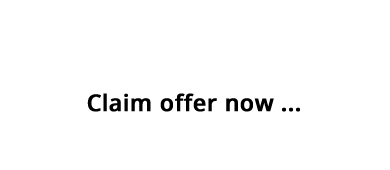Self-Harm Awareness E-Learning Courses
Pay monthly for all courses from just £0.40/user!
Our Self-Harm Awareness course includes all components below...
Self-Harm Awareness: Course Overview
Understand what self-harm is.Knowledge of self-harm in relation to current society.
Identify different types of self-harm.
Triggers and causes of emotional distress that could result in self-harming.
Concepts of self-harm.
How to manage and support those at risk or involved.
Preventing future occurrences of self-harm including distraction techniques.
Explore common scenarios and ways of raising awareness.
Information on what help is available and most effective.
Self Harm Awareness FAQ
Self-harm can be a way of coping with problems and is when somebody intentionally damages or injures themselves. Self-harm is often understood to be a physical response to an emotional pain of some kind, and can be very addictive. Some of the things people do are quite well known, such as cutting, burning or pinching, but there are many, many ways people react including abusing drugs and alcohol or developing an eating disorder.
Unfortunately it can be anyone. There is no typical person who self harms. It is often associated with young adults but an individual who displays harming behaviour can be of all ages, any sex, sexuality or ethnicity, and from any type of background.
In order to develop an understanding of people who self harm it is vital to spot the signs that may not initially be associated with self-harming. The general assumption of self harm is that it involves cutting the skin with either a knife, razor or scissors. Unfortunately self harming includes a wide range of behaviours such as poisoning, head banging and intentional overdosing to name a few. Warning signs for specific behaviours may be particular to that behaviour - but common signs may include:
1) unexplained cuts and bruises on the body
2) wearing long sleeves and pants, even in warm weather
3) secrecy, such as keeping a specific drawer locked or hiding specific items
4) a breakdown in typical communication
5) mood changes or mood swings
6) changes in eating patterns
7) changes in sleeping patterns
8) changes in socialising patterns
9) evidence of drug or medical paraphernalia
10) evidence of carrying unnecessary sharp objects, matches or lighters
11) poor performance or results at school or work
12) loss of interest in favourite hobbies or sports
13) distancing themselves from family members
14) any sign of mental illness
Pricing
Prices vary depending on how many courses you need. Please view our pricing structure to find the package that best suits your organisation.
You can gain instant access to all our courses with our small monthly subscription, or pay as you go and buy each course either independently or in bulk. Subscriptions start from as little as 40p per user per month!
your subscription.
Gain immediate access to all areas of our CQC training platform
and enjoy unlimited care courses and unlimited users!
Gain immediate access to all areas of our CQC
training platform
and enjoy unlimited care courses and
unlimited users!

Get the 1st Month FREE on
your subscription.
Gain immediate access to all areas of our CQC training platform
and enjoy unlimited care courses and unlimited users!

Get the 1st Month FREE
on your subscription.
Gain immediate access to all areas of our CQC training platform
and enjoy unlimited care courses and unlimited users!

Accreditation
CPD Standards Office accreditation provides credibility to our online courses that just aren't available with other e-learning providers. Via evidence-based accreditation you are ensuring your organisations standards are high and consistent, as well as offering employees engaging and substantive learning with which to enrich their careers.
More information can be found on the CPD website.
Booking
Please contact us to get a quote. Once your booking is confirmed, we will then send you your joining instructions! No downloads, no hassle. Just create a login and input the code we send you to start the course.
For larger organisations our portal can be rebranded to your requirements. For more information on this service, please contact us and we will be happy to help.
Assessment
After you have completed your assessment (including multiple choice questionnaire), your digital certificate is sent to the email address used to login as soon as the course is completed.
If you have not received your certificate, please first check your spam box. If it isn't there, please call and we will get this resent.
Do courses expire?
There is no expiry date on course credits. Once a credit has been bought it can be allocated at any time. However, should the credit have been allocated to the delegate, each learner then has 12 months to complete the course.
In other words, unallocated course credits have no expiry date. If for example you ordered 1000 licences, and allocated 600 courses in year 1, you would have 400 licences left to allocate in year 2.
Contact Us.



